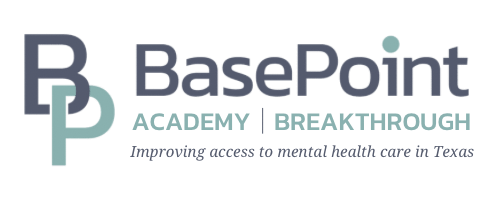Psychiatrist for Young Adults | Psychiatric Care Programs in Dallas, Texas
Explore our detailed guide to psychiatric care programs for young adults in Dallas, Texas. BreakThrough by BasePoint offers a variety of tailored mental health support options, from psychiatric evaluation to psychotherapy sessions and medication management strategies. Uncover the array of resources available to address mental illness at its core so you can thrive in early adulthood.
What is a Young Adult?
A young adult refers to individuals between 18 and 28 years old. This transitional phase is marked by significant personal and professional growth post-adolescence. Young adults are navigating the coming-of-age challenges and opportunities. It’s a time of exploration, self-discovery, and independent living, often characterized by youthful ambitions, pursuing higher education, entering the workforce, and forming meaningful relationships.
During these pivotal years, young adults commonly experience significant life transitions. They may struggle to define their identities, set career goals, manage finances, and navigate romantic relationships. This period often involves excitement and uncertainty as individuals strive to carve out their paths while adapting to newfound responsibilities and freedoms. Overall, the young adult stage is a critical foundation for shaping future trajectories and establishing a sense of autonomy and purpose.
Young Adult Psychiatric Care Admissions & Intake
Our free assessment with a licensed clinician will provide you with a recommendation for the appropriate level of care for young adults struggling with their mental health. We can also check your insurance coverage levels.
Call us today to schedule a same day assessment at (972) 357-1749 or fill out our inquiry form.
Find Out About Our Psychiatric Admissions
What is a Young Adult Psychiatric Care Program?
A young adult psychiatric care program is a specialized mental health service tailored to the unique needs of individuals aged 18 to 28. These programs offer comprehensive treatment and support for various psychiatric disorders that commonly emerge during this transitional phase.
Unlike general psychiatry, young adult psychiatric care programs often incorporate age-appropriate interventions, therapeutic modalities, and peer support networks to address the specific challenges faced by this age group. These programs provide various services, including individual therapy, group therapy, medication management, psychoeducation, and skill-building workshops.
Additionally, they may offer holistic approaches that consider the intersection of mental health with other aspects of young adults’ lives, such as education, career development, relationships, and lifestyle choices. These programs aim to empower young adults to manage their mental health effectively, navigate life transitions, and build resilience for long-term well-being by offering a specialized and tailored approach.
What Do Young Adult Psychiatrists Do?
Young adult psychiatrists specialize in delivering tailored mental and behavioral healthcare to individuals aged 18 to 28, addressing the distinct needs indicative of Generation Z and young Millennials. A psychiatrist’s duties include conducting thorough psychiatric evaluations to diagnose conditions and develop personalized treatment plans, considering factors like medical history and social support systems.
They offer various interventions such as psychotherapy, psychoanalysis, medication management, and psychoeducation, empowering young adults to manage their mental health confidently and effectively. Additionally, they serve as advocates, supporting patients in navigating life transitions and accessing necessary services for their well-being. Through their expertise and dedication, young adult psychiatrists can be vital to helping young adults thrive mentally and emotionally.

What is The Difference Between a Psychiatrist and a Psychologist?
The primary difference between a psychiatrist and a psychologist lies in their training and treatment approach. Psychiatrists are medical doctors who specialize in mental health. They’re qualified to diagnose and treat mental illnesses. They can also prescribe medication, offer medical interventions, and provide psychotherapy.
Psychologists, on the other hand, hold advanced degrees in psychology and typically offer talk therapy, counseling, and psychological assessments. While they cannot prescribe medication in most cases, they focus on understanding and treating behavioral and emotional issues through psychotherapy and behavioral interventions.
Another distinction is in their educational paths and the interventions they provide. Psychiatrists undergo medical training, including medical school and residency, giving them expertise in the biological aspects of mental health conditions. Psychologists, meanwhile, pursue doctoral or master’s degrees in psychology, specializing in various areas such as clinical psychology or neurology and focusing on psychotherapeutic techniques and psychological assessment methods.
Overall, both psychiatrists and psychologists play crucial roles in addressing mental health concerns, often collaborating to provide comprehensive care to individuals.
Contact BreakThrough by BasePoint Today
Contact us today to schedule a free confidential assessment with a licensed clinician.
You can also get in touch to talk with our mental health experts about treatment needs, care options and your insurance coverage levels.
Call: (972) 357-1749Check Your InsuranceBreakthrough by BasePoint Accepts Health Insurance For Young Adults
We accept most major health insurance providers in Texas and can check your treatment coverage levels on your behalf
Young Adults Psychiatric Care Programs in Dallas, Texas
BasePoint Academy operates multiple treatment centers throughout the Dallas, Texas, area, specializing in care for adolescents and young adults. Understanding the significance of early intervention, we offer same-day, complimentary assessments to identify the most suitable level of care tailored to your specific needs. This guarantees timely, often vital, patient assistance, underscoring our dedication to promoting well-being among Texas youth.
- Arlington, Texas: 3900 Arlington Highlands Blvd, Suite 237, Arlington, TX 76018
- Forney, Texas: 713 W Broad St, Suite 200, Forney, TX 75126
- McKinney, Texas: 4733 Medical Center Drive, McKinney, TX 75069

Best Ways to Find a Psychiatrist for Young Adults Near Me
Finding suitable psychiatrists or psychiatry programs for young adults is essential for navigating the complexities of mental health during early adulthood. Below, we’ll explore various strategies to help you locate experienced, qualified psychiatrists specializing in addressing the unique needs of this demographic. Contact us for further assistance or to inquire about BreakThrough, our outpatient treatment program for young adults.
- Insurance Provider: Contact your health insurance provider (if applicable) to obtain a list of psychiatrists who accept your insurance plan. This ensures you can receive affordable care and help narrow your search to psychiatrists within your network.
- Online Search: Use Google or other online search engines for young adult psychiatry services in Texas. Input both broad and specific keywords like “psychiatry for depression in young adults,” “young adult psychiatry mental health services near me,” or “best young adults psychiatrist near me.” You can follow up your search with your precise location for even more accurate results.
- Referrals and Recommendations: Your primary care physician can provide referrals for psychiatrists who specialize in treating young adults, while trusted family or friends may offer personal recommendations with valuable insights into the quality of care and compatibility with a known psychiatrist.
- University Counseling Centers: If you’re a college student or young adult affiliated with a university, explore the counseling or mental health services offered on campus. These centers often provide psychiatric services or can refer you to nearby psychiatrists who specialize in treating 18 to 28-year-olds.
- Professional Associations: Explore professional associations such as the American Psychiatric Association (APA) or state psychiatric organizations. They often have directories or referral services to help you find qualified psychiatrists.
- Community Mental Health Centers: Community mental health centers or clinics in your immediate area may offer psychiatric services for young adults on a sliding-scale fee basis or at reduced costs.
- Online Reviews and Ratings: Research online reviews and ratings of psychiatrists to gain insights into their reputation, treatment approach, and patient satisfaction. Reviews should be considered alongside other factors, such as the therapist’s or program’s specialty and credentials.
Statistics on Psychiatric Care Programs Related to Emerging Adults
Generation Z individuals are facing significant mental health challenges, with only 15% rating their mental health as “excellent.” A lower percentage of Gen Z members (18 to 26) thrive than Millennials, highlighting a concerning trend. Social media usage among young adults is linked to poorer mental health outcomes, potentially increasing the risk of alcohol consumption and related consequences.
Despite the prevalence of mental health issues, the percentage of young adults receiving mental health services remains lower than older age groups, while college students are particularly affected, with 39% experiencing significant mental health issues. Recent surveys indicate that young adults in the United States experience anxiety and depression at double the rate of teens. Annually, roughly 9.5% suffer from a depressive illness, highlighting the widespread impact of mental health challenges amongst this age group.
Types of Psychiatric Care Programs for Those in Early Adulthood
Navigating mental health challenges during early adulthood can be daunting, but with the proper support and resources, you can effectively manage your well-being and thrive. Below, we’ll explore various types of psychiatric care programs explicitly tailored for 18 to 28-year-olds. These programs offer specialized interventions and support to address young adults’ unique needs and challenges.
Inpatient Residential Psychiatric Care for Young Adults
Residential psychiatric care tailored for young adults offers intensive, 24/7 treatment for those grappling with severe mental health challenges. These programs provide a structured, nurturing environment where individuals can undergo thorough psychiatric assessment, medication management, individual and group therapy sessions, as well as educational support.
With a primary focus on stabilization and crisis management, residential care ensures safety while equipping individuals with essential coping mechanisms to navigate their conditions effectively. Additionally, these programs often incorporate family therapy sessions and discharge planning to facilitate a seamless transition to community-based care.
For guidance through every phase, including transitioning to and from inpatient residential psychiatric care, call (972) 357-1749. Our dedicated team specializes in young adult mental health and is committed to helping you find the most suitable program for your or a loved one’s needs.
Partial Hospitalization Programs (PHP)
Partial Hospitalization Programs (PHPs) present a structured yet less demanding option than inpatient care. PHPs operate during the day and deliver comprehensive treatment while permitting participants to return home in the evenings. Typically, PHPs comprise psychotherapy sessions, medication management, educational support, and personalized skill-building activities to address each individual’s unique needs.
By offering intensive treatment while allowing one to maintain connections with a supportive social network and community, PHPs proactively support mental wellness. A PHP provides stability while promoting progress in the recovery journey. Contact us to learn more about our partial hospitalization program for young adults at BasePoint Academy.
Female Psychiatrist for 18 to 28-Year-Old Females
Finding a psychiatrist who understands and empathizes with the unique experiences of young adult females is essential for effective mental healthcare. We’re proud to offer psychiatric services tailored specifically for this demographic. Led by a compassionate, experienced female psychiatrist, our team provides evaluation, diagnosis, and treatment options to address mental illnesses commonly faced by young adult women. Call (972) 357-1749.
Psychiatrist for ADHD and Depression
Seeking a psychiatrist who specializes in Attention-Deficit/Hyperactivity Disorder (ADHD) and depression can be instrumental in effectively managing these conditions and improving overall well-being. Our clinic is dedicated to providing expert psychiatric care for young adults struggling with ADHD and depression.
Led by an experienced psychiatrist with a deep understanding of these psychiatric disorders, our team offers comprehensive evaluation, personalized treatment plans, and ongoing support to help individuals regain control over their lives. Whether you’re seeking medication management, psychotherapy, or a combination, our psychiatrist is committed to working collaboratively with you to develop strategies that address your unique needs and empower you to lead a fulfilling life. Contact us today.
Psychiatrist for OCD, Bipolar, and Mental Health
Finding a psychiatrist who specializes in Obsessive Compulsive Disorder (OCD), bipolar disorder, and overall mental health can make a significant difference in managing these complex conditions. BasePoint Academy’s BreakThrough program provides expert psychiatric care for young adults struggling with these mental health challenges and others.
Highly experienced psychiatrists lead our team with a deep understanding of mental health disorders and psychopharmacology. We offer comprehensive evaluations, personalized treatment plans, and ongoing support for stability and improved overall well-being. Whether you require medication management, Cognitive-Behavioral Therapy (CBT), or a combination, our psychiatrists are committed to collaborating to develop a tailored approach that addresses your distinct needs. Our goal is to empower you to lead a fulfilling life despite the challenges posed by OCD, bipolar disorder, and other mental health conditions—call (972) 357-1749 to learn more.
Psychiatrist for College Students
For college students navigating the complexities of campus life while managing mental health concerns, seeking support from a psychiatrist specialized in this demographic can be invaluable. Our experienced psychiatrists provide customized care through psychiatric evaluations, personalized treatment plans, and ongoing support, equipping students with the tools to manage their mental health and thrive. Contact us for more information.
Psychiatrist for Young Professionals
Guidance from a psychiatrist specialized in young adults can be instrumental for career starters and young professionals navigating the pressures of the professional world while maintaining their mental well-being. BreakThrough by BasePoint understands the career demands and unique challenges faced by young professionals. We’re dedicated to providing expert psychiatric care to help individuals effectively balance their professions with mental wellness.
Whether you’re contending with stress, burnout, anxiety, or other challenges, our psychiatrists are committed to providing compassionate care that addresses your unique needs and empowers you to flourish both personally and professionally—call (972) 357-1749 today.

Signs You Might Need a Psychiatric Care Program in Early Adulthood
Recognizing the signs that indicate a need for psychiatric care programs in early adulthood is crucial for effectively addressing mental health challenges. As you transition into independence and navigate this period’s complexities, signs and symptoms may emerge that indicate the need for professional support. Below, we’ll explore common indicators suggesting the need for a psychiatric care program in early adulthood.

Persistent Mood Changes
Persistent mood changes during early adulthood may signal the need for psychiatric care. These fluctuations, including prolonged periods of sadness, irritability, or apathy, can impact various aspects of life. Seeking evaluation and support from specialized psychiatric care programs for young adults can help address these changes and develop effective coping strategies.
Difficulty Coping with Stress
Difficulty coping with stress, especially in early adulthood, may indicate a need for psychiatric care. Persistent struggles can lead to heightened anxiety and difficulty managing daily responsibilities. Psychiatric support can provide valuable resources and strategies to navigate stressors more effectively and improve overall well-being.
Changes in Sleeping Patterns
Changes in sleeping patterns, common during early adulthood, may indicate underlying mental health issues. Persistent disruptions like insomnia or oversleeping can impact mood, energy levels, and overall well-being. Seeking support from specialized psychiatric care programs can provide valuable interventions to address sleep disturbances and improve mental health outcomes.
Changes in Appetite or Weight
Changes in appetite or weight, especially during early adulthood, may signal underlying mental health issues. Fluctuations such as weight loss or gain can impact physical and emotional well-being. Seeking support from specialized psychiatric care programs can provide interventions to address these changes and improve overall health outcomes.
Difficulty Concentrating or Making Decisions
Difficulty concentrating or making decisions, especially in early adulthood, may indicate underlying mental health challenges. These cognitive difficulties can interfere with daily functioning and may stem from factors like stress, anxiety, depression, or ADHD. Seeking professional support can provide targeted interventions to improve concentration and decision-making abilities, enhancing overall mental well-being.
Excessive Worry or Anxiety
Excessive worry or anxiety, common during early adulthood, can disrupt daily life and relationships. Seeking support from specialized psychiatric care programs offers interventions like therapy and medication management to alleviate symptoms and improve overall mental health. Early intervention can empower one to navigate the challenges of this transitional phase with confidence.
Difficulty Managing Relationships
Struggling to manage relationships is common during early adulthood and can lead to profound amounts of stress and isolation. Seeking support from specialized psychiatric care programs offers interventions to improve communication and conflict resolution skills, fostering healthier connections and enhancing overall well-being.
Unexplained Physical Symptoms
Unexplained physical symptoms like headaches, stomachaches, or fatigue may indicate underlying mental health issues, particularly during early adulthood. These physical manifestations may occur without any identifiable medical cause and can significantly impact daily functioning and overall well-being. Specialized psychiatric care programs can address physical and emotional symptoms, leading to improved well-being.

Does Insurance Cover Psychiatrists for Young Adults?
Yes, although insurance coverage for psychiatrists varies depending on your or your legal guardian’s particular insurance plan. Many insurance plans offer coverage for psychiatric services, including those specifically tailored for young adults. However, coverage details, such as copayments, deductibles, and network providers, should be reviewed carefully to understand the extent of coverage for your particular treatment needs.
At BasePoint Academy, we’re happy to check your insurance coverage details on your behalf. We can then provide information on any out-of-pocket expenses you’ll be responsible for and any requirements, such as prior authorization before your provider will cover your treatment—call (972) 357-1749 today.
Which Health Insurance Providers Cover Psychiatric Care for the 18-28 Age Group?
Several major health insurance providers extend coverage for psychiatric care tailored to young adults of the Millennial Generation and Generation Z. UnitedHealthcare, Blue Cross Blue Shield, Aetna, Cigna, and Carelon Behavioral Health are among the companies that typically cover services such as psychiatric evaluations, psychotherapy, medication management, and various treatment programs for psychiatric disorders.
Although these insurance providers and others are known for their coverage, reviewing your policy to understand the details and potential limitations is crucial. Coverage specifics vary depending on factors such as the type of plan, your location, individual treatment needs, and more. Call (972) 357-1749 to clarify your benefits and the process for accessing psychiatric care for the 18-28 age group.
- Online mental health can help reduce mental health stigma, may help those with limited mobility, and is compatible with public health guidelines during highly infectious seasons.
- A national poll revealed most people have welcomed telehealth expansion. The number using telehealth services rose 7% from 2020 to 2021 and nearly 60% said they would use telehealth for mental health care.
- Respondents were more likely to say that mental health telehealth offers the same quality and younger adults were more likely to use it than older adults.
- A study by Verywell Mind showed that 91% of people in online mental health therapy said that more people should try it.
- Portland State University found those receiving mental health treatment online scored higher in the Global Assessment of Functioning and Client Satisfaction Scales.
- According to the National Council for Behavioral Health, more than 50% of Americans found mental health too hard to get or too expensive. Teletherapy helps eliminate some of those barriers.
- Online therapy allows you to receive mental health in the privacy of your home and access providers on a flexible schedule. However, therapy sessions can be impacted by unstable internet connections and may not be comfortable for people who need help with in-person communication skills.

Effective Psychiatry for Young Adults With Breakthrough by BasePoint
With expert care and a safe environment, we can help you address and overcome mental health concerns. Call today to discover the treatment for long-term healing.










